Over the years, the modern Russian economy is constantly improving, becoming more and more effective. Many economic processes are gradually put on a scientific footing. And this is due not only to the presence of a visionary leadership. With the development of the economy, the number of enterprises in its individual branches increases. National, and especially global, economies can simply drown in a whirlwind of problems.
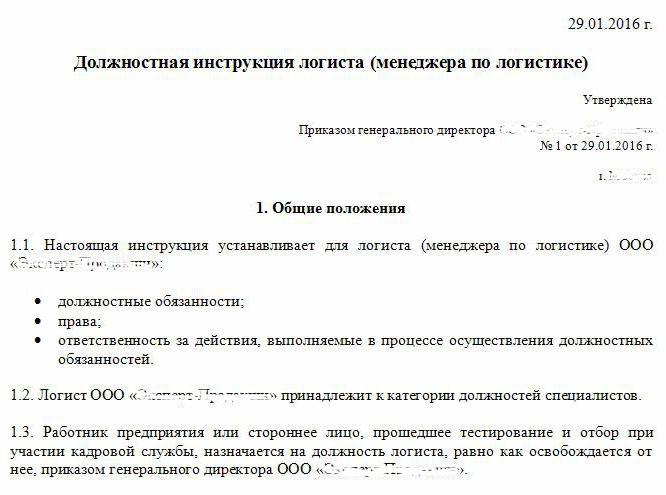
In this regard, the term "logistics" is increasingly heard in business. A specific specialist, the logistics manager, is required to regulate this area of activity. Why is it so interesting and why do official documents increasingly include the job description of the logistics manager, a sample of which for various officials, including the manager (responsible) in logistics, is entrusted to be developed by many heads of personnel departments?
The meaning of the term
Currently, there is no unified wording of the term “logistics”. Here is one of the options: logistics is the science of the process of moving products from the initial link in the chain (producer) to the last (consumer). Logistics combines all the processes associated with the transportation of products.
Despite the processes of introducing scientific methods, far from all businessmen have realized that even production itself works and delivers goods only due to the fact that the logistic structure of interactions is clearly established and meticulously calculated. In this regard, the wide distribution of the job description of the logistics manager will help to understand the role of such employees in many companies.
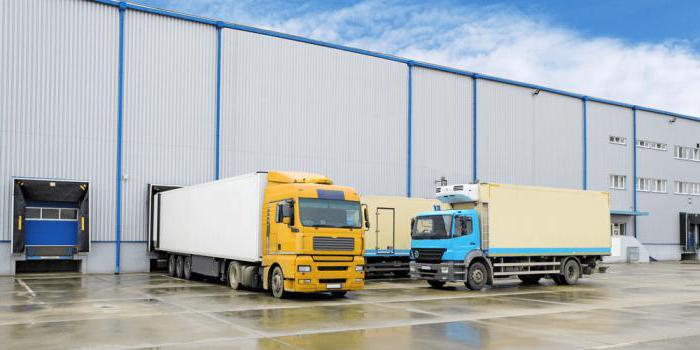
Manager of logistick
Today, logistics workers work in many companies. The job description of the logistics manager outlines a range of functions related to the control of raw materials and materials, production and sales of goods to the final consumer. It is mainly necessary to solve problems aimed at the most profitable transportation and storage of certain products. There are so many of them, and they are so diverse that the activities of the logistician in certain areas will be completely different from each other. Although the scope of common responsibilities coincides.
Functions
In the field of various branches of logistics, there are general specialist functions that are assigned to each of the employees. Such duties are independent of the specifics of the field of activity. The job description of the logistics manager includes the following items:
- planning and financial verification of logistics movements of goods and services;
- forecasting consumer demand, conducting preparatory activities to clarify the optimal destination, tracking suppliers;
- provision and verification of storage conditions for goods;
- competent scheme of cargo transportation, taking into account its features and the lowest cost;
- insurance of manufactured goods;
- search for the best distribution of cargo within the warehouse complex and during its transportation to customers;
- elaboration of the necessary customs documents.
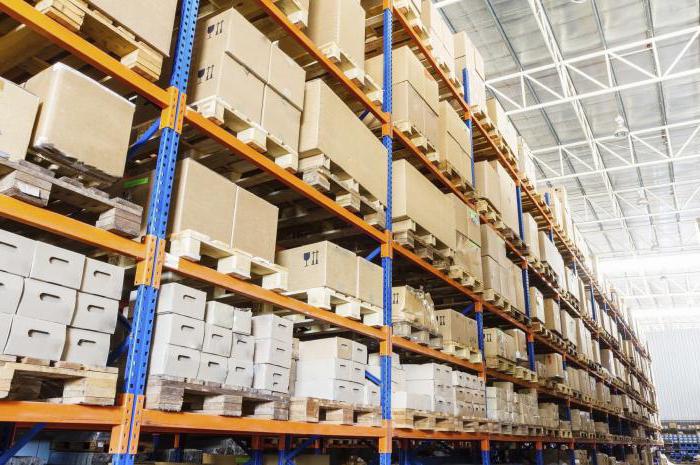
In small companies, all this work rests on the shoulders of one employee. But in large companies, especially those working on diversified orders, entire logistic departments have to function, where each employee performs clearly defined functions.
Warehouse Manager
Highly specialized managers primarily differ in their field of activity.For example, a procurement and logistics manager, whose job description mainly includes control of warehouse storage, is required to carry out the following duties:
- organize the storage of products in a warehouse, the specifics of the goods must be taken into account;
- work with warehouse documentation;
- scheduling the placement of goods;
- creating a structure for the movement of products, placing them in preparation for transportation or further processing;
- work with warehouse territory and others.
Transport Logistics Manager
The functions performed by the transport logistics manager are slightly different from the responsibilities of other specialists. The job description of the logistics manager of the transport department includes:
- Prediction of travel routes and transportation systems for specific goods.
- Election of a freight carrier, negotiating with partners.
- Preparation of proper documents.
- Regular monitoring and control of the progress of transportation.
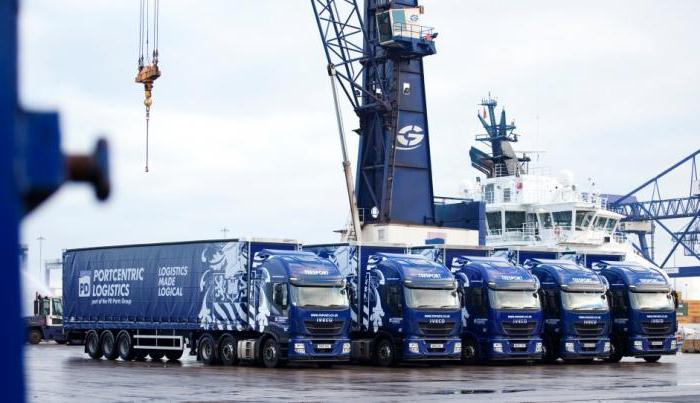
Thus, the job description of the transport logistics manager shows what his role is in the company. This specialist is different from other employees of the logistics department, where everyone is busy exclusively with their own business.
Rights and Responsibilities
The job rights, according to the job description of the logistics manager, are wide. For example, he can make a request for any resources and official information as part of his activities. A logistics specialist has the right to interact with other organizations to resolve issues that are within his competence. In addition, the logistician can represent the range of interests of his company as part of his career with other companies.
The duties of this employee are pretty tough. They cause great responsibility, not only administrative, but also financial, in some cases also criminal. For inadequate performance of their work or instructions of responsible employees, the logistician is in great trouble. With the exception of this, the logistics manager has clearly defined official functions, which he is not entitled to use incorrectly or in personal interests.
Finally, the responsibility of the logistician is to comply with safety regulations. If violations in this area are discovered, he must immediately stop them and prevent the threat to the company or the health of other workers from expanding. With the same rigor, labor discipline must be followed.
Monitoring and Evaluation
There may be several governing bodies evaluating and supervising employees of logistic structures. The performance of duties is monitored, except for the direct superiors, who are constantly at the workplace, by a special certification commission. She works on the basis of the logistics activities not every day, but periodically. And usually based on documents received over a period of time.
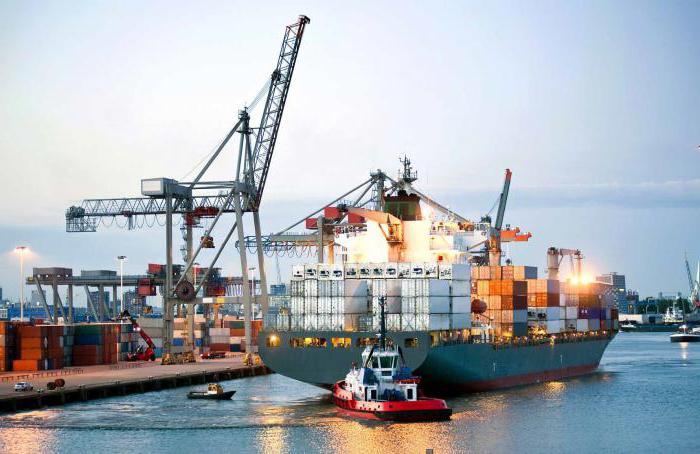
In addition, the leading criterion for evaluating the activities of a specialist is the quality of work. On how clearly and correctly the employee fulfills the tasks assigned to him, how well he complies with the instructions, his position in the company and the possibility of further career growth depend. Thus, the job description of the transport logistics manager brings broad functions to the position of an employee, taking them outside the same direction. Of course, his role is quite important.
Requirements for other employees
To a certain extent, the position of the logistics manager can be understood by comparing with the duties of other employees of a regular company:
- The scope of activity of the management of the logistics department includes setting existing tasks and general management, sharing finances, finding a direction for development and expanding volumes, strengthening the company's position in the market.
- A business analyst chooses the best storage or transhipment scheme, monitors related structures, and manages logistics operations at the warehouse. He is also looking for ways to improve the efficiency of the company.
- The leading logistics manager will consider the volume and quality of the purchase of resources and clarify the schedules for the appearance of the goods, study the sales market, analyze warehouse logistics, examine the price activity of the company, develop statistical data and transmit the proper reports to the management.
- The dispatcher of the logistics department organizes transportation routes, monitors deliveries, develops shipping documents, analyzes fuel consumption and other details.
Logistics Manager and Head of Department
Against this background, the job description of the logistics manager of a certain department requires forecasting product sales, distributing goods between warehouses, considering quantitative and qualitative promotion, improving the circulation of goods in a company or between partners.
Thus, it should be noted that employees in this area do not duplicate each other, each of them has its own field of activity. Responsibilities depend on the position and activity of a particular specialist.
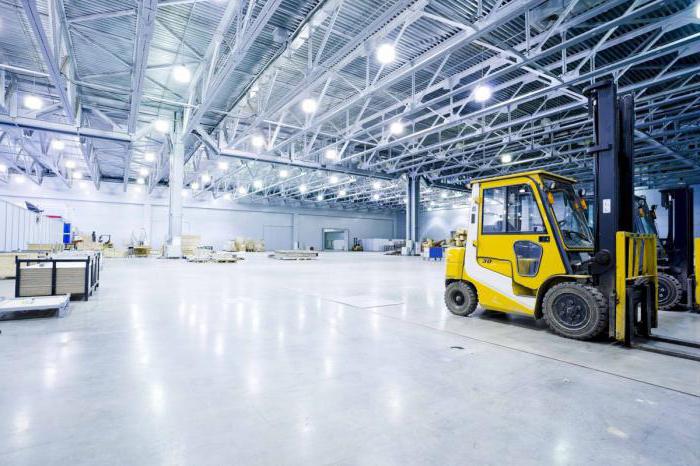
Organization Logistics Requirements
When you have to look for work as a logistics manager, you need to understand the basic conditions for future employees:
- Diploma of Higher Professional Education. It is necessary to get education in this area, in addition, it is good if you were engaged in economics or customs. Having an international certificate or diploma of continuing education in this area will be a great advantage.
- Ability to communicate with company employees, partners and customers. This is especially necessary for a logistics manager whose work requires contacts with a large number of people. The ability to communicate with customers, partners, possibly even foreign ones, will certainly come in handy for a manager. A positive sign will be a good knowledge of a foreign language. The job description of the foreign trade and logistics manager, which the candidate for the position is fully acquainted with, largely contributes to the final decision of the management in your favor.
- Analytical thinking. The logistician should be able to change the development of the situation in the most optimal direction.
- Stress resistance. The work of the logistics manager is, unfortunately, associated with frequent stresses. There is regular pressure from management, there is nervous work with clients and colleagues, clear deadlines. A person capable of maintaining peace and restraint, no matter what happens, should go to this position.
- Ability to take responsibility. This must be understood first of all: the logistician always has a heavy burden of responsibility. In practice, it is he who must guarantee the normal activity of the company, without failures and force majeure. Awareness of the contents of the job description of the logistics manager at the enterprise suggests: logisticians are the backbone of any company for normal operation.
The beginning of the way
Most successful employees are accepted for their professional activities from lower positions, "growing" to managers. If you manage to get a job only as an assistant in a small company, this is already a sufficient step. At first, in your field of activity will mainly be working with documents, including processing data on logistics processes in the enterprise.
In a relatively short time, you can not only gain practical experience, but also understand the meaning of the tasks, analyze the functions of general logistics, the contents of the job description of the logistics manager in the organization, which will make it possible to find your industry.After choosing a certain direction, it will be easier to continue a full-fledged career.
If everything goes well, in the presence of special efforts and leadership traits in character, in a short time you can grow into a middle or senior manager or department head.

Now the demand for logistics on the labor market is very high. Each logistics department of a large company will be happy to hire a young but talented specialist, in some regions the number of vacancies even exceeds the number of candidates. It all depends on the workers themselves, their energy and abilities.